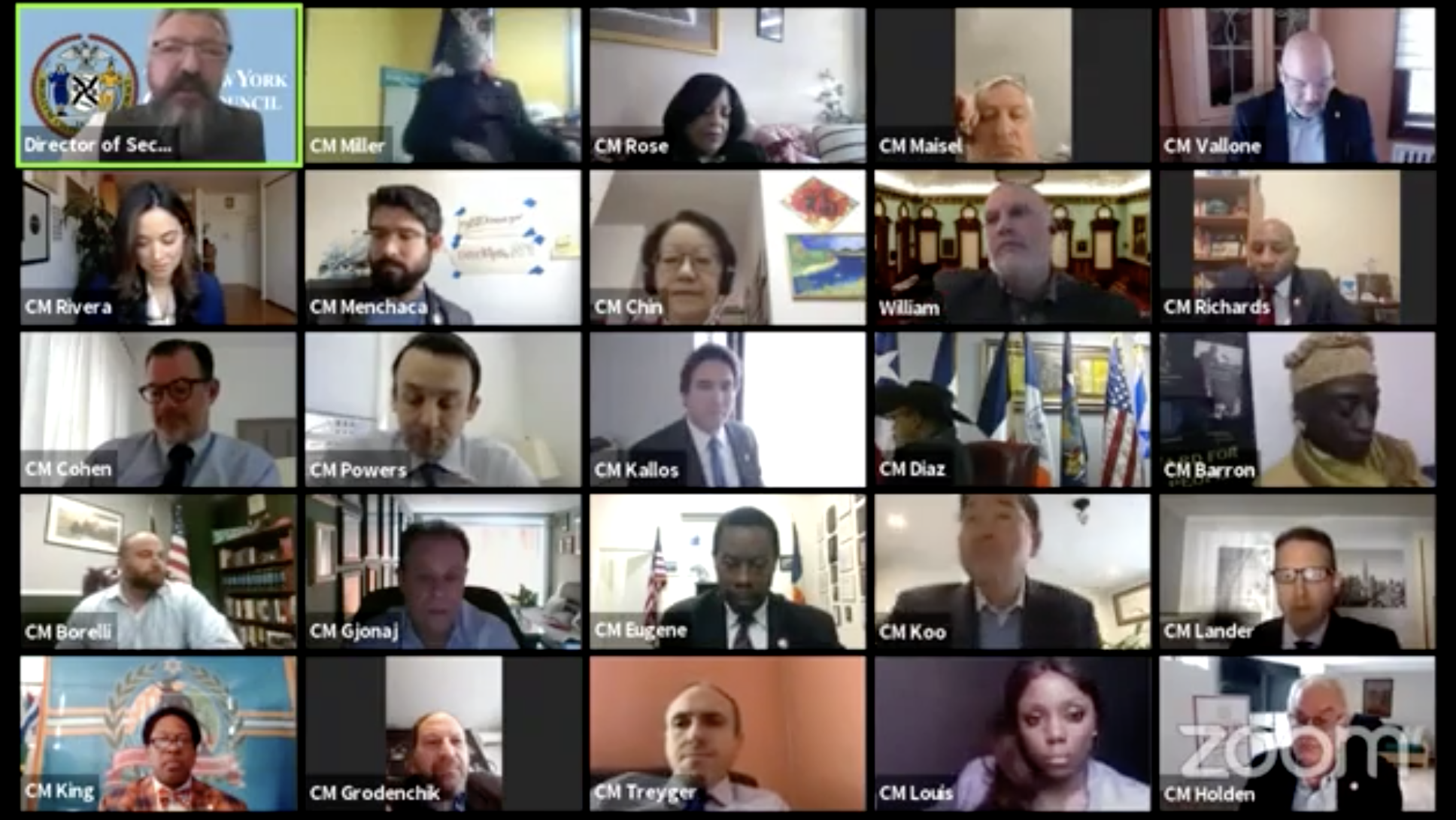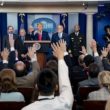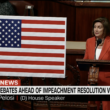Nearly everyone has found a way to stay connected and keep operating during the Covid-19 crisis. Doctors are consulting with patients online. Senior citizens in assisted living facilities have learned how to Zoom on iPads to talk with their families. Even the U.S. Supreme Court is continuing to deliberate and hold oral arguments, using old-fashioned teleconferencing.
Everyone is working remotely—except Congress.
Our Democratic and Republican leaders have refused to accept the possibility that they can convene and deliberate online. Mitch McConnell has forced the Senate to reconvene in person. And, so far, all House Democrats have been willing to do is set up a commission to study the issue, while House Republicans are refusing to try Zoom or other videoconferencing tools, claiming they’ll be hacked. Instead, they’re insisting that Members return to their offices, even though the close quarters of the U.S. House would endanger many and the House’s own resident physician has advised against any such move.
What this means is committees can’t meet, mark up legislation, or conduct oversight by calling witnesses. The Constitution explicitly set up our system to provide for checks and balances between the three branches of government, but now one leg of that system is largely disabled.
Our representatives are, of course, still working day and night to try to respond to their constituents’ needs during this crisis, but the point of having elected someone to Congress is so they can use their full powers to advocate for us.
Other reluctant governments are inching their way into new digital territory. The New York City Council held its first-ever digital meeting April 22nd using Zoom. The United Kingdom’s venerable House of Commons just held a hybrid session with many members joining via Zoom.
We are in the middle of a once-in-a-century crisis—and Congress isn’t passing another needed emergency spending bill, conducting oversight hearings, or preparing the federal budget that needs to be passed by September.
There is no time to waste right now, and yet, Congress is doing just that. There are at least opportunities for experimentation in this moment. To his credit, Rep. Steny Hoyer, the number two Democratic leader in the House, has called on his colleagues to start videoconferencing and committee chairs have gotten the green light to hold unofficial “forums” or “roundtables” via Zoom. But that’s not the same thing as a formal committee hearing.
Security is a legitimate concern. No one wants the indelible image of a hearing on a vaccine for Covid-19 interrupted by a troll spamming people’s screens with porn. And there will be enormous attempts by hackers to make that happen. However, the Defense Department and White House regularly host discussions via video conference without interference. The federal government has the ability and know-how to make this happen. And certainly the private sector knows how to do it.
But there’s no reason to worry about a congressional vote held over Zoom getting hacked. Members can recognize each other, and votes declared during a publicly viewable video conference can be easily verified.
I know from my work on introducing technology to support and strengthen democracy that concerns about security are often just excuses made because of the unnamed fear of change. This isn’t a technology problem, it’s a human problem.
If the Senate cannot move itself into the 21st Century, the House could alone. What better way to demonstrate that the Democratic majority is more in step with the pace and concerns of the country, than to work differently during a national emergency.
C’mon Congress, step up and adopt time-limited emergency legislation to get back to work like the rest of us are doing.
The cost of refusing to convene remotely is either to put the lives of Members and their staffs at risk by insisting that they can only work in person, or to have an unnecessarily impaired legislature. The choice is obvious: Let Congress Zoom.
Allison Fine is a pioneer and advocate for the use of technology for social good. She has written three books on the topic and most recently has been working with the Bill and Melinda Gates Foundation on harnessing artificial intelligence and automation for social justice. She is currently a candidate for the Democratic nomination to Congress in New York’s CD-17, which includes Westchester and Rockland counties (see www.allisonfineforcongress.com).







0 Comments